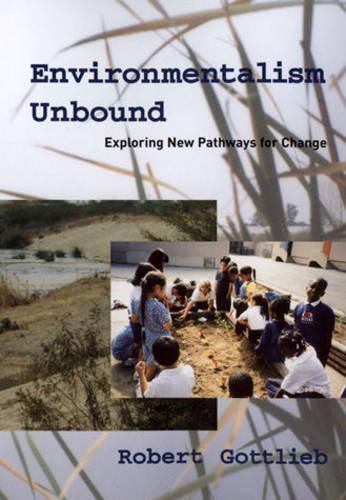Readings Newsletter
Become a Readings Member to make your shopping experience even easier.
Sign in or sign up for free!
You’re not far away from qualifying for FREE standard shipping within Australia
You’ve qualified for FREE standard shipping within Australia
The cart is loading…






In Environmentalism Unbound, Robert Gottlieb proposes a new strategy for social and environmental change that involves reframing and linking the movements for environmental justice and pollution prevention. According to Gottlieb, the environmental movement’s narrow conception of environment has isolated it from vital issues of everyday life, such as workplace safety, healthy communities, and food security, that are often viewed separately as industrial, community, or agricultural concerns. This fragmented approach prevents an awareness of how these issues are also environmental issues.After tracing a history of environmental perspectives on land and resources, city and countryside, and work and industry, Gottlieb focuses on three compelling examples of this new approach to social and environmental change. The first involves a small industry (dry cleaning) and the debate over pollution prevention approaches; the second involves a set of products (janitorial cleaning supplies) that may be hazardous to workers; and the third explores the obstacles and opportunities presented by community or regional approaches to food supply in the face of an increasingly globalized food system.
$9.00 standard shipping within Australia
FREE standard shipping within Australia for orders over $100.00
Express & International shipping calculated at checkout
Stock availability can be subject to change without notice. We recommend calling the shop or contacting our online team to check availability of low stock items. Please see our Shopping Online page for more details.
In Environmentalism Unbound, Robert Gottlieb proposes a new strategy for social and environmental change that involves reframing and linking the movements for environmental justice and pollution prevention. According to Gottlieb, the environmental movement’s narrow conception of environment has isolated it from vital issues of everyday life, such as workplace safety, healthy communities, and food security, that are often viewed separately as industrial, community, or agricultural concerns. This fragmented approach prevents an awareness of how these issues are also environmental issues.After tracing a history of environmental perspectives on land and resources, city and countryside, and work and industry, Gottlieb focuses on three compelling examples of this new approach to social and environmental change. The first involves a small industry (dry cleaning) and the debate over pollution prevention approaches; the second involves a set of products (janitorial cleaning supplies) that may be hazardous to workers; and the third explores the obstacles and opportunities presented by community or regional approaches to food supply in the face of an increasingly globalized food system.